
The Corlears Hook Fencibles US 6th Armored Division, 19441945
On April 11, 17 days before Kiniry set foot there, the 6th Armored Division of Patton's Third Army reached Buchenwald. Commanded by Major General Robert W. Grow, the "Super Sixth," as it was nicknamed, had been in the field since mid-July 1944. The division had pushed into Thuringia, in east-central Germany, and seized Mühlhausen on April 4.
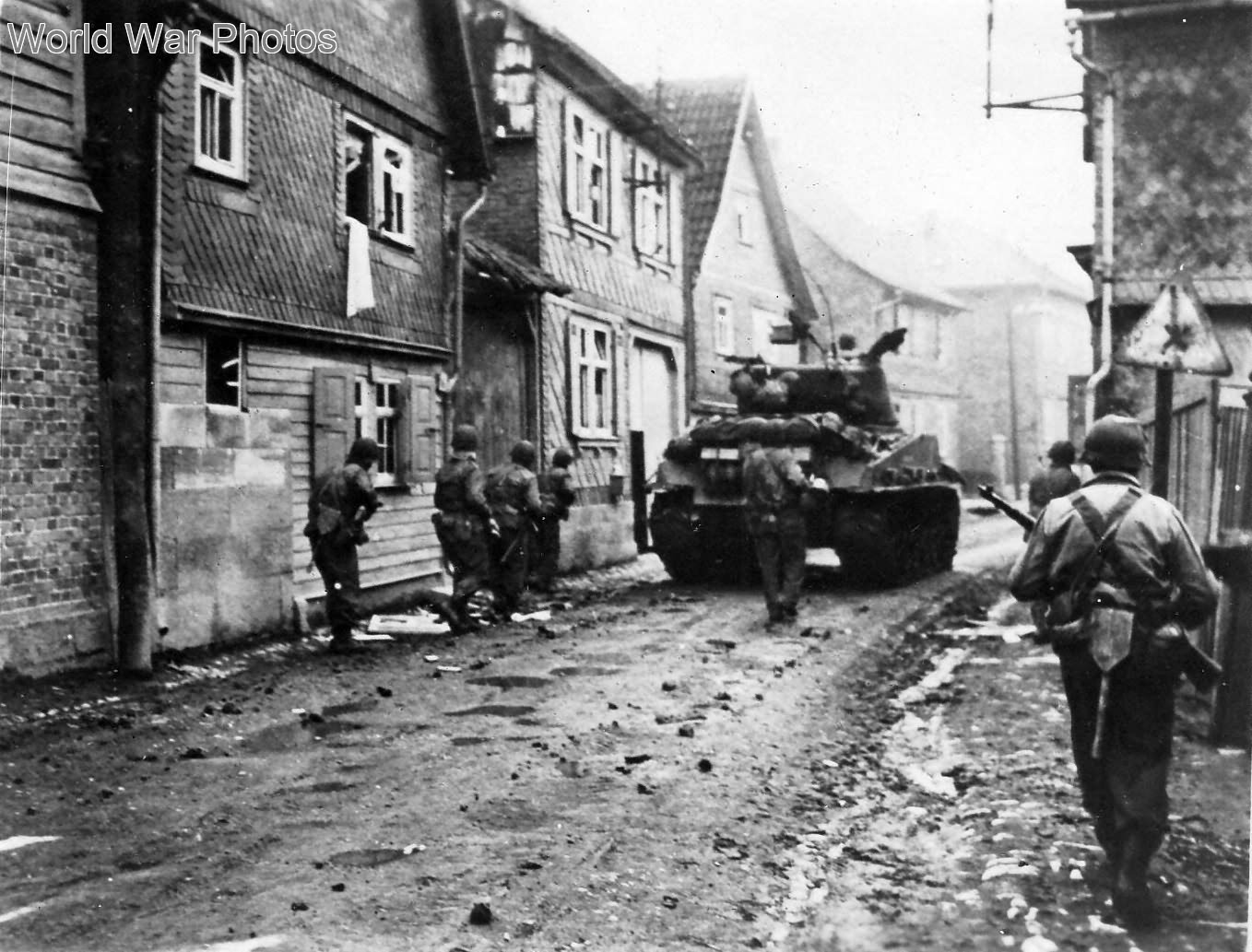
6th Armored Division GI's and M4A3 at Oberdorla 1945 World War Photos
April 11, 1945 On April 11, GIs of the 6th Armored Division entered Buchenwald, the main camp in a large complex of concentration camps near Weimar that had recently been abandoned by German troops. American soldiers who liberated the camp were met by thousands of emaciated camp survivors.
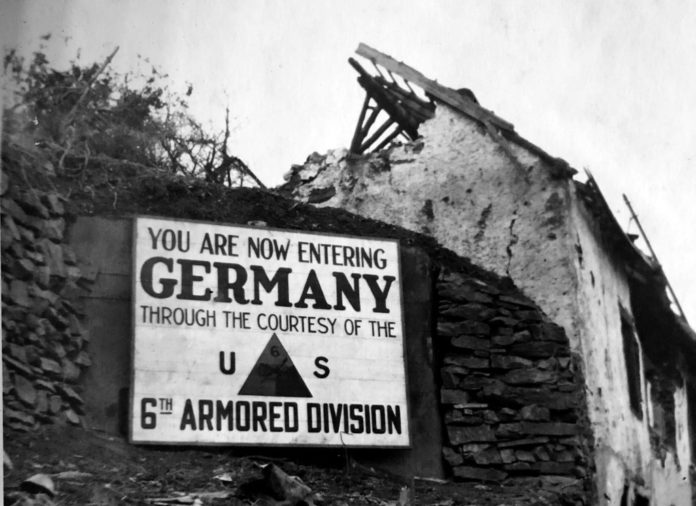
European Center Of Military History (EUCMH) 6th Armored Division WW2
Support JVL. On July 18, 1944, the 6th Armored Division landed on the Normandy beaches, some six weeks after the D-Day invasio n of western Europe. The "Super Sixth" was subsequently assigned to General George S. Patton's Third Army, and took part in the Allied counteroffensive to stop the German advance during the Battle of the Bulge.
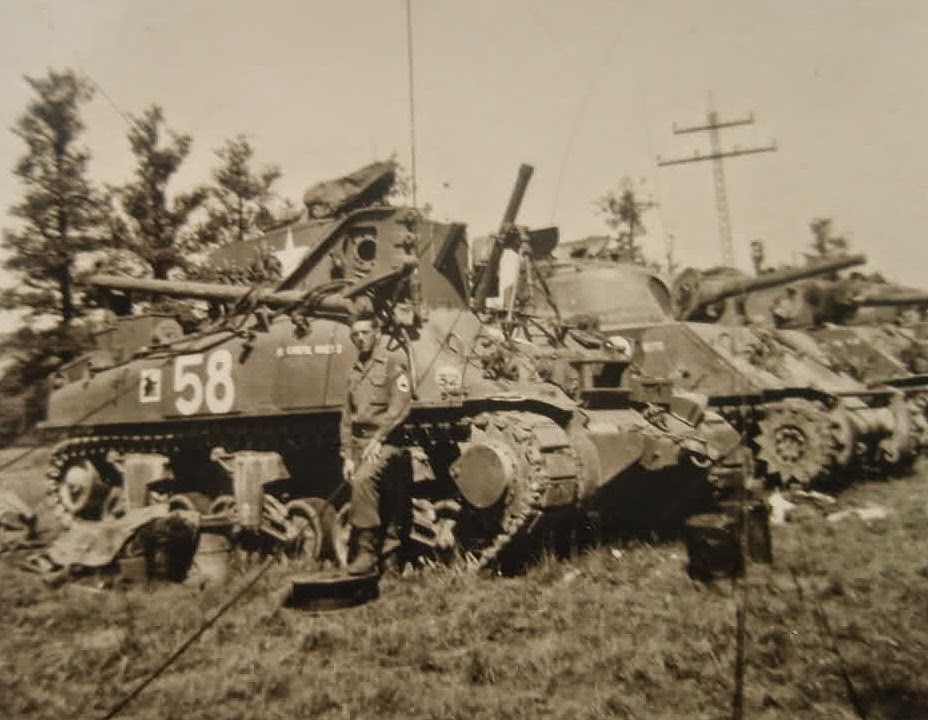
6th U.S. Armored Division—The Super Sixth! 15th Tank Battalion "Wolfpack"—————— WWII Photos
An American map titled "Campaigns of the Super Sixth Armored Division." The map shows the areas conquered and the tactical and administrative march of the division. The legend gives details of the division's movement, campaigns, operations, and other details.

M4A3E2 76mm "Aquino," 15th Tank Battallion, 6th Armored Division. Tanks military, American
Soldiers from the 6th Armored Division, part of the Third Army, found more than 21,000 people in the camp. Soon after liberation, camp survivors from Buchenwald's "Children's Block 66"—a special barracks for children.

6th Armored Division
The 6th Armored Division was one of the divisions in wwii that saw the most action. On this site we publish articles about the men wo fought so bravely.

M4A3 Shermans of 6th Armored Division, Frankfort, Germany. March 1945. American tank, Tanks
6th Armored Division; 212th Armored Field Artillery Battalion; 128th Armored Field Artillery Battalion; 231st Armored Field Artillery Battalion; Combat Command A; Combat Command B; 777th AntiAircraft Battalion; 146th Armored Signal Company; 86th Cavalry Reconnaissance Squadron; 25th Armored Engineer Battalion; 76th Armored Medical Battalion
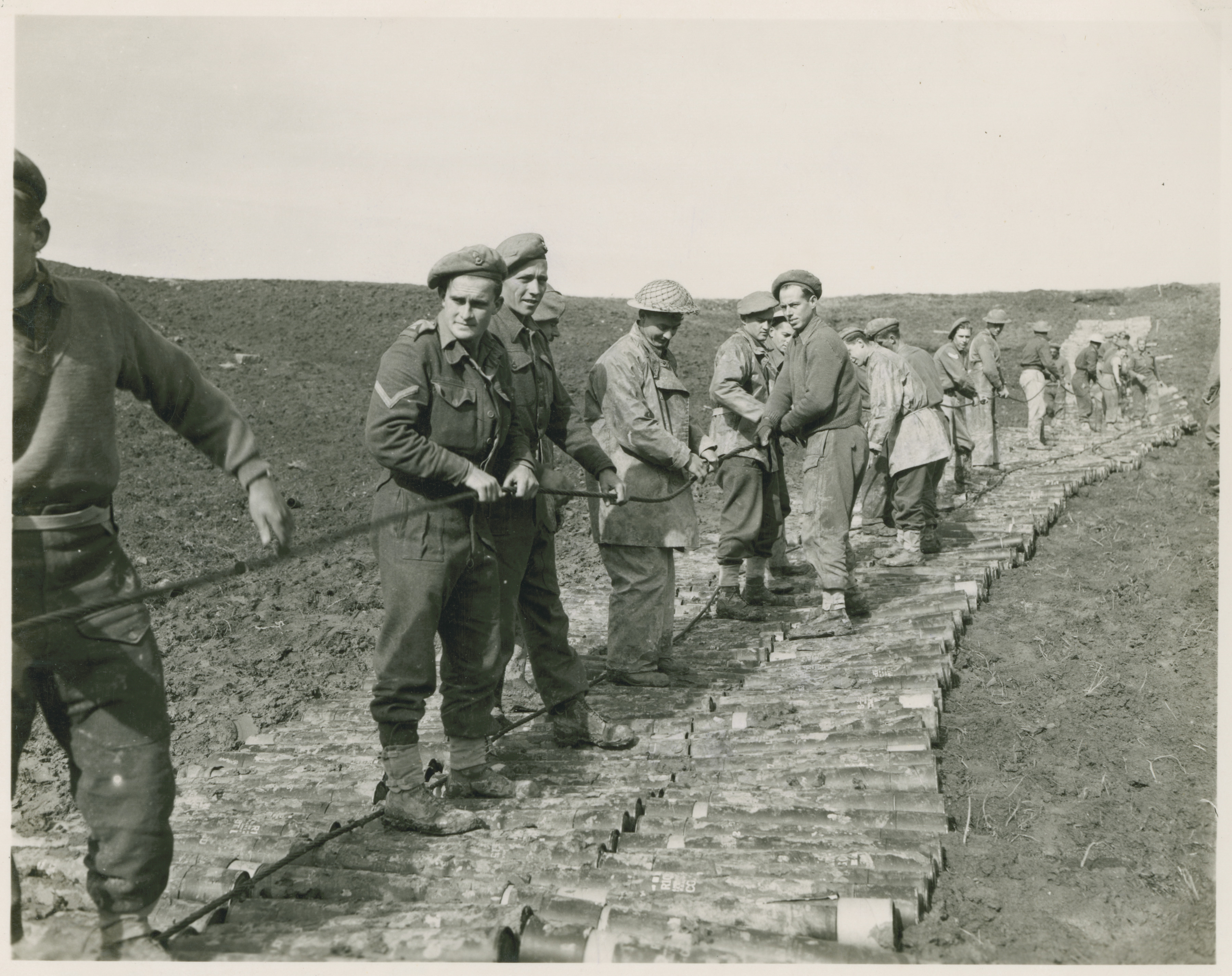
South African 6th Armored Division standing on a road they created from spent 105mm shells in
Rhineland This campaign map shows the route of the 6th Armored Division throughout France, and Germany during World War II. This chart is available for purchase at HistoryShots.com
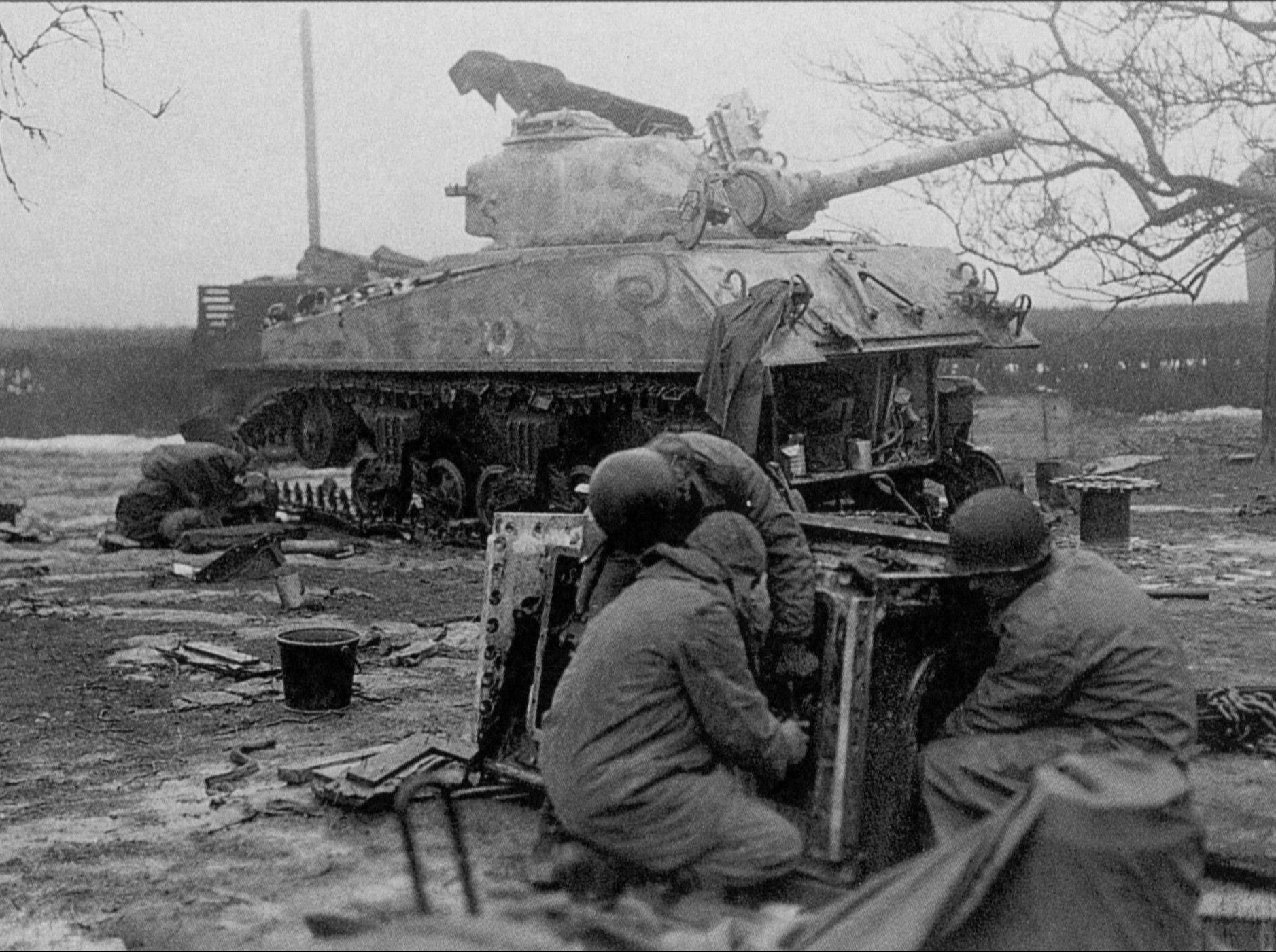
6th Armored Division
The 6th Armored, now coming into METZ, was preparing to enter the battle after having been relieved in the FORBACH and SARREGUEMINES sector by the 103rd Infantry Division. Upon the arrival of the final units of the Division in METZ on Christmas Day, the Division reorganized its combat commands, and headed north to relieve elements of the 10th.

Tanks and troops of the 6th Armored Division enter Oberdorla, Germany during Worl...HD Stock
T he 6th Armored Division had three Tank Battalions: the 15th, the 68th and the 69th. Each battalion had its own insignia. Because the 15th was known as the Wolf Pack, it had a wolf's head over an armored triangle as the battalion insignia. In some black and white photos the marking appears as a wolf head on a simple white square.

6th Armored Division, Frankfort, Germany. March 1945. American tank, World of tanks, Tank fury
Robert S. Bond was a forward artillery observer for the 6th Armored Division in World War II. He landed with the division in Normandy, France, and advanced into Germany. Along the way, he participated in the fighting in France, Belgium, and Germany, including the Battle of the Bulge. In 1945, while in a single-propeller reconnaissance.
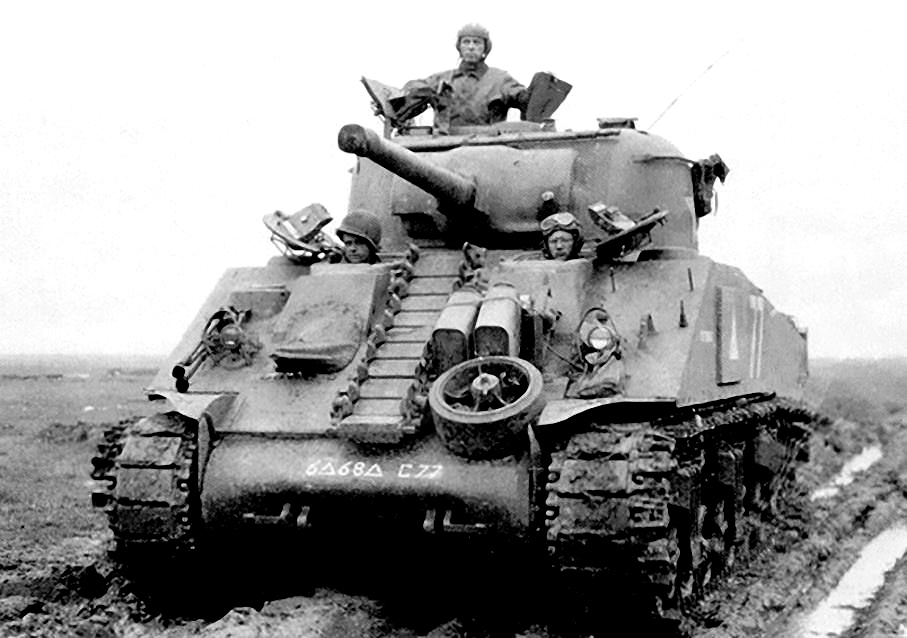
6th Armored Division (OOB)(EUCMH)007 European Center Of Military History (EUCMH)
The 6th Armored Division was one of General George S. Patton's famous Third Army divisions during World War II in Europe. Its post-war alumni association disbanded at its final reunion in Louisville, KY in September, 2000. (Click for explanation of photos.) At a glance.

Sixth Armored Division of United States Army drives through Altenburg in Germany HD Stock
6th Armored Division "Super Sixth" The mixture of insignia and distinctive colors of several arms incorporated in the Armored Force symbolize integrity and esprit. It is an interlocked ornament, found in Nordic monuments, composed of three torques: red for Artillery; blue for Infantry; and yellow for Cavalry.
M4 Sherman from the 68th Tank Battalion, 6th Armored Division carries US infantry towards
146th Armored Signal Company. 6th Armored Division Trains. 128th Ordnance Maintenance Battalion. 76th Armored Medical Battalion. Military Police Platoon. Band. Reinforcements. Anti-aircraft artillery - 777th AAA AW Battalion (SP), from July 22nd, 1944 to June 29th, 1945. Field artillery
M4A1 Sherman “Big Snafu” of the 6th Armored Division, 1943 TankPorn
Introduction ''Combat History, The Super Sixth" is a compilation of data from many sources, but by far the greater part of the material was obtained from after-action reports prepared by the G-3 Section, 6th Armored Division, under the direction of Major Clyde J. Burk, Assistant G-3, with Lts. Hunter Haines, Chester Kneller, Bernard Yaeger, and Paul Cundiff assisting, and appears here under.

A soldier of the US 6th Armoured Division, The Super Sixth. Formed in 1942 at Fort Knox
6th Armored Division World War II Activated: 15 February 1942. Overseas: 11 February 1944. Campaigns: Normandy, Northern France, Rhineland, Ardennes-Alsace, Central Europe. Days of Combat: 272..